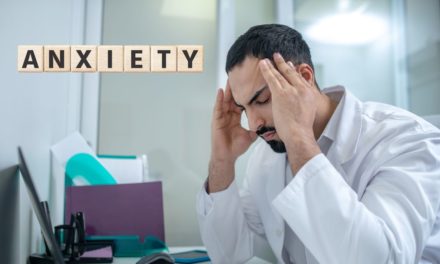Introduction
Muscular tremor, commonly referred to as tremors, is a neurological disorder characterized by involuntary and rhythmic shaking of certain body parts. Tremors can affect various areas, such as the hands, arms, head, voice, and legs. The condition can range from mild to severe, and it may significantly impact an individual’s daily activities and quality of life. In this article, we will provide a comprehensive overview of muscular tremor, including its types, potential causes, impact on individuals, and available treatment options. By fostering awareness and understanding, we aim to support those affected by tremors and provide insights into effective management strategies.
Understanding Muscular Tremor
Muscular tremor is an involuntary movement disorder characterized by rhythmic and uncontrolled shaking of specific body parts. The condition may be present at rest or become more pronounced during movement.
Types of Muscular Tremor
- Essential Tremor: Essential tremor is the most common type of tremor and typically affects the hands, head, or voice. It tends to worsen with intentional movement.
- Parkinsonian Tremor: Parkinsonian tremor is associated with Parkinson’s disease and often involves resting tremors that decrease during movement.
- Cerebellar Tremor: Cerebellar tremor results from damage or dysfunction in the cerebellum and can affect multiple body parts during movement.
- Dystonic Tremor: Dystonic tremor occurs in conjunction with dystonia, causing involuntary muscle contractions and abnormal postures.
Potential Causes of Muscular Tremor
- Genetic Factors: Some types of tremors, like essential tremor, may have a genetic component.
- Neurological Conditions: Tremors can be associated with neurological disorders such as Parkinson’s disease, multiple sclerosis, or stroke.
- Medication Side Effects: Certain medications may induce tremors as a side effect.
- Caffeine or Alcohol Consumption: Excessive caffeine or alcohol intake can trigger or worsen tremors.
Impact on Individuals
Muscular tremors can significantly impact an individual’s quality of life, affecting their ability to perform daily tasks, work, and socialize comfortably. In some cases, severe tremors may lead to embarrassment and isolation.
Seeking Professional Evaluation
Individuals experiencing tremors should seek evaluation from a healthcare professional or neurologist to determine the type and potential underlying cause.
Treatment Options for Muscular Tremor
- Medications: Medications, such as beta-blockers or anticonvulsants, may help manage essential tremor and certain other tremor types.
- Botox Injections: Botox injections can be used to treat dystonic tremors by blocking nerve signals to the affected muscles.
- Physical and Occupational Therapy: Therapy can help improve coordination and muscle control, reducing the impact of tremors on daily activities.
- Deep Brain Stimulation (DBS): For severe cases of essential tremor or Parkinsonian tremor, DBS may be considered to improve symptoms.
- Lifestyle Modifications: Avoiding tremor triggers, such as caffeine or stress, and getting sufficient rest can be beneficial.
Creating a Supportive Environment
Support from family, friends, and employers can be crucial in helping individuals with tremors manage the condition and adapt to any limitations.
Conclusion
Muscular tremor is an involuntary movement disorder that can significantly impact an individual’s life. By understanding the types, potential causes, and available treatment options, individuals can seek appropriate management strategies for better tremor control and improved quality of life. Effective treatments, medication, therapy, and lifestyle modifications offer hope for those affected by tremors to lead fulfilling lives. Together, let us prioritize awareness, foster empathy, and support individuals with muscular tremor in their journey towards better tremor management and overall well-being.










